Rocket Exploration

How has rocket technology evolved since the early days of space exploration ?
The evolution of rocket technology has been a journey from liquid-fueled rockets to reusable launch vehicles, marked by significant milestones. The development of ICBMs during the Cold War laid the groundwork for space exploration technologies. Multistage rockets increased payload capacity and efficiency. Reusable rockets reduced costs and paved the way for sustainable space travel. Future prospects include advanced propulsion systems like ion thrusters and nuclear propulsion, promising faster transit times and more efficient energy use.

How do international collaborations influence the development of rocket technology ?
International collaborations play a crucial role in the development of rocket technology by fostering knowledge exchange, sharing resources, and pooling expertise to overcome complex challenges. Here's a detailed look at how these partnerships influence advancements in this sector: 1. **Knowledge Exchange**: - **Cross-pollination of Ideas**: Collaborative efforts allow for the cross-pollination of ideas from different countries, each bringing unique perspectives and solutions to the table. This diversity of thought can lead to innovative breakthroughs that might not have been possible within a single nation's framework. - **Education and Training**: Through international partnerships, scientists, engineers, and technicians have access to educational programs and training opportunities that broaden their skill sets and keep them abreast of the latest advancements in rocket technology. 2. **Resource Sharing**: - **Financial Resources**: Developing advanced rocketry is costly. Partnerships can spread the financial burden across multiple nations, making ambitious projects more feasible and sustainable. - **Technical Resources**: Different countries may specialize in specific areas of rocket technology. By collaborating, they can share tools, facilities, and materials, accelerating research and development processes. 3. **Expertise Pooling**: - **Specialization**: Each country often has its areas of specialization. International collaborations enable the concentration of specialized knowledge and skills on particular aspects of rocket technology, leading to more efficient and effective outcomes. - **Problem-Solving**: When faced with complex engineering problems, a collaborative approach means that diverse teams can work together to find solutions more quickly and effectively than isolated efforts might achieve. 4. **Risk and Cost Sharing**: - **Reducing Individual Risk**: By collaborating, nations can share the risks associated with rocket development. This risk distribution makes it easier for countries to embark on ambitious projects without bearing the full consequences of potential failures. - **Cost Efficiency**: Sharing the costs of research, development, and manufacturing among partners can make rocket technology more affordable, allowing for greater investment in innovation rather than duplicative efforts. 5. **Global Standards and Regulations**: - **Unified Approach**: Collaboration helps in establishing global standards for safety, quality, and performance. These standards ensure consistency in the industry and make it easier for different countries to work together seamlessly. - **Compliance and Regulation**: International cooperation also facilitates the creation of regulations that govern the responsible use of space, preventing conflicts and ensuring the sustainable exploration and use of space for all nations. In conclusion, international collaborations are instrumental in propelling the development of rocket technology forward. They create an environment where resources, knowledge, and expertise are shared, risks and costs are distributed, and global standards are established, ultimately benefiting all participants in the quest for space exploration and beyond.
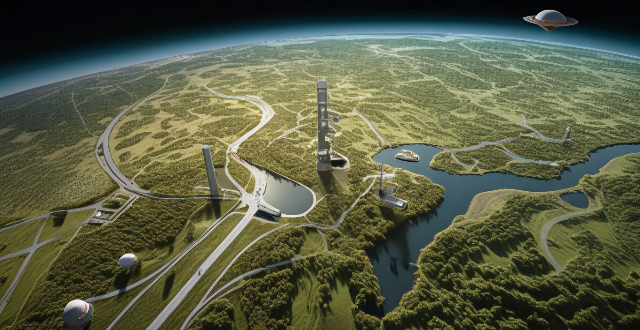
What are the current trends in commercial space exploration ?
Commercial space exploration is a rapidly evolving field, drivenCommercial space exploration is a rapidly evolving field, driven, economic incentives, and small satellite constellations for internet and Earth observation, space tourism and commercial space stations, Moon and Mars exploration, in-space manufacturing and resource utilization, and international cooperation and legal frameworks. These trends demonstrate that commercial space exploration is not only expanding our knowledge of the universe but also creating new industries and opportunities for economic growth.
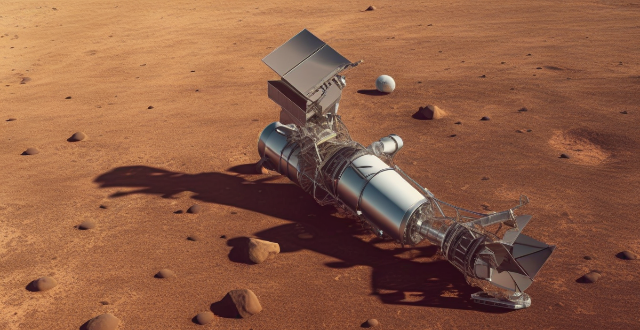
What companies are leading the way in commercial spaceflight ?
Commercial spaceflight is a growing industry with several key players, including SpaceX, Blue Origin, Virgin Galactic, Boeing, and Rocket Lab. Each company has its own mission and achievements, ranging from successful launches and landings of rockets to developing new spacecraft for future missions. These companies are leading the way in advancing humanity's exploration and utilization of space.

How does rocket propulsion work and what fuels are commonly used ?
Rocket propulsion is the method through which a rocket generates thrust, converting potential energy from fuel into kinetic energy expelled at high velocity. Key components include fuel and oxidizer, the combustion chamber, and the nozzle. The process involves ignition, combustion, expansion, acceleration of gases, and finally, thrust generation. Rockets use various types of chemical fuels, including liquid and solid variants, as well as alternative concepts like hybrid, nuclear, and electric propulsion. Each type of fuel has its advantages and disadvantages, making them suitable for different applications.
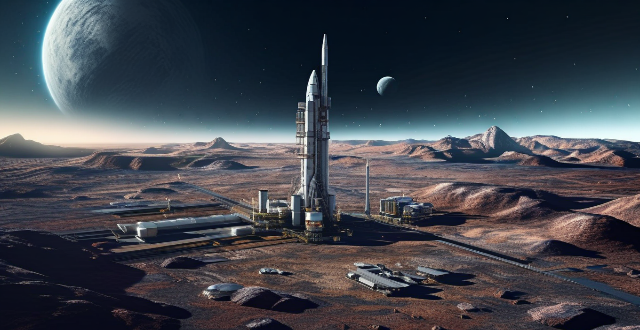
What safety measures are taken during a rocket launch and how have they improved over time ?
Rocket launches are complex and dangerous events that require numerous safety measures to ensure the success of the mission and the well-being of all personnel involved. Over time, these safety measures have evolved and improved significantly due to advancements in technology, increased understanding of potential risks, and lessons learned from past incidents. Before a rocket is launched, several safety measures are taken to minimize risks, such as design reviews, quality assurance testing, personnel training, range safety, and weather checks. Once the rocket is launched, additional safety measures come into play, including telemetry tracking, flight termination systems, and emergency evacuation plans. After the rocket has successfully reached space, there are still safety considerations, such as debris tracking and environmental cleanup. Safety measures during rocket launches have improved significantly over time due to advancements in technology, increased understanding of risks, lessons learned from past incidents, and stricter regulations and standards developed by government agencies and industry organizations.
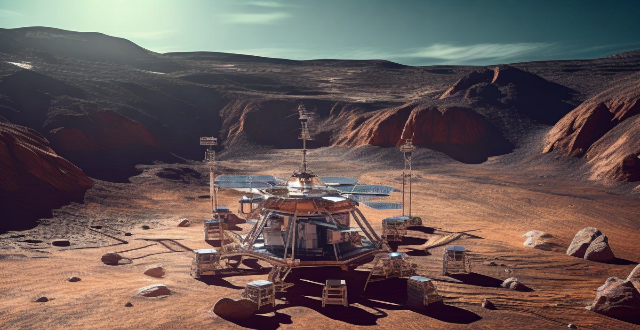
What is the role of artificial intelligence in modern rocket technology ?
The article discusses the pivotal role of Artificial Intelligence (AI) in revolutionizing various aspects of modern rocket technology. It explores how AI is transforming design and manufacturing processes, including computational fluid dynamics simulations, machine learning-driven material science, and automated manufacturing. The text also delves into AI's contributions to launch and orbital insertion, such as predictive maintenance, trajectory optimization, and real-time decision making. Furthermore, it highlights AI applications in on-orbit operations like autonomous navigation, swarm intelligence, and fault detection and recovery. The article concludes by discussing future implications of AI in deep space exploration, reusable rocketry, and collaborative robotics, emphasizing its potential to make space missions safer, more efficient, and cost-effective.

What is the role of private companies in space exploration ?
Private companies have become key players in space exploration, driving technological advancements, reducing costs, and fostering innovation. They are at the forefront of developing new technologies such as reusable rockets, advanced propulsion systems, and robotic explorers. Private companies often operate with leaner budgets and more streamlined processes than government agencies, allowing them to deliver space missions at a lower cost. This cost-effectiveness is crucial for making space exploration more accessible and sustainable over the long term. Private companies are known for taking risks and pursuing innovative ideas that might not be considered by government agencies due to budget constraints or strategic priorities. Their involvement has made space missions more accessible and sustainable while opening up new possibilities for exploring our solar system and beyond.

How does space exploration benefit humanity ?
The benefits of space exploration for humanity include technological advancements, economic growth through job creation and commercial opportunities, global collaboration fostering peace, scientific discoveries about our universe, inspiration and education for future generations, preserving Earth by monitoring environmental changes, and national security measures. These benefits touch every aspect of human life, making space exploration a significant investment in our collective future.

What are the current advancements in space exploration ?
The text discusses current advancements in space exploration, including commercial space travel, Mars and lunar exploration, deep space probes, and telescopes and observatories. These advancements showcase humanity's relentless pursuit of knowledge and understanding of the universe around us.

How does space exploration inspire future generations ?
Space exploration has been a source of inspiration for future generations in various ways, including igniting curiosity and wonder, advancing scientific knowledge, promoting international collaboration, encouraging careers in STEM, inspiring creativity and art, and nurturing resilience and perseverance. As we look toward the future, space exploration will continue to capture the imagination of young people around the world and spur them on to become the next generation of explorers, scientists, and engineers.

How does space exploration impact global cooperation and diplomacy ?
Space exploration has been a significant driver of global cooperation and diplomacy since the dawn of the space age. The pursuit of understanding our universe and the quest to explore beyond Earth's boundaries have fostered international collaboration, technological advancements, and diplomatic engagements that transcend traditional geopolitical tensions. In this discussion, we will delve into the various ways space exploration influences global cooperation and diplomacy.
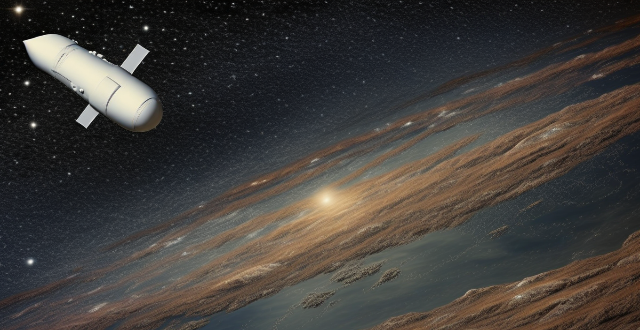
What role does satellite communication play in space exploration and research ?
Satellite communication is crucial for space exploration and research, enabling data collection, real-time communication, navigation, and international collaboration. It will continue to play a vital role in future applications such as deep space exploration, autonomous robotics, and quantum communication.
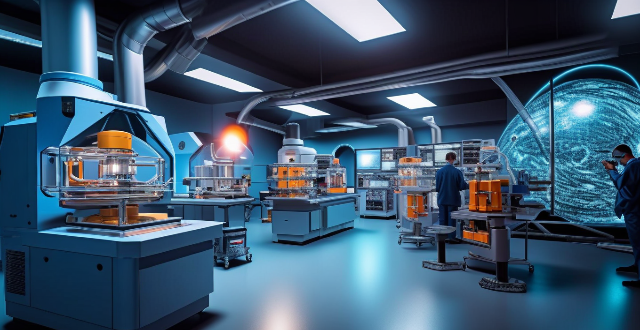
How does space exploration contribute to our understanding of the universe ?
Space exploration has been a crucial tool in expanding our knowledge about the universe. It has allowed scientists to observe and study phenomena that are impossible or difficult to replicate on Earth. In this article, we have discussed how space exploration contributes to our understanding of the universe through observation of cosmic phenomena, study of the solar system, testing scientific theories, and development of new technologies. By continuing to explore space, we will undoubtedly gain even more knowledge about the vastness and complexity of the universe.

What challenges do engineers face when designing rockets for deep space exploration ?
Designing rockets for deep space exploration poses several challenges to engineers, including extreme conditions, long-duration missions, communication delays, limited resources, complexity of systems, safety concerns, cost constraints, environmental impact, and regulatory compliance. These challenges must be carefully considered to create effective solutions that enable us to explore our solar system and beyond.

How will interstellar exploration impact our understanding of the universe and our place within it ?
Interstellar exploration is a quest to understand the universe and our place in it. It has the potential to revolutionize scientific knowledge by unraveling cosmic origins, understanding planetary systems, and advancing physics. It can also impact human perspective by realizing our place in the cosmos, cultural and philosophical implications, and ethical considerations. Interstellar exploration stands at the threshold of transforming our knowledge and perceptions, pushing the boundaries of science, and reshaping humanity's self-image.

Are there any ethical considerations that need to be addressed before embarking on interstellar exploration ?
The text discusses the ethical considerations for interstellar exploration, including potential risks and benefits, as well as the impact it may have on future generations. The risks include the risk to human life due to harsh conditions in space, resource allocation that could be diverted from addressing pressing issues on Earth, and cultural impact promoting a culture of colonization and exploitation. The benefits include scientific discovery, technological innovation, and collaboration and peace among nations. The impact on future generations involves responsibility to preserve knowledge and ensure sustainability, as well as opportunities for new worlds and a legacy of exploration. It is crucial to carefully weigh these factors and address ethical considerations before proceeding with plans for interstellar travel.

Is there any evidence of extraterrestrial life that could be discovered through interstellar exploration ?
The search for extraterrestrial life is one of the most fascinating and enduring mysteries in science. While there is no direct evidence of extraterrestrial life, scientists continue to explore the possibility through various means, including interstellar exploration. In this article, we will discuss the potential evidence of extraterrestrial life that could be discovered through interstellar exploration. Exoplanets are one of the primary targets in the search for extraterrestrial life. Scientists have identified thousands of exoplanets using various methods, such as the transit method and radial velocity method. Some of these exoplanets are located in the habitable zone, which is the range of distance from a star where liquid water can exist on the surface of a planet. Since water is essential for life as we know it, these exoplanets are considered prime candidates for harboring extraterrestrial life. Biosignatures are signs of life that can be detected remotely, such as gases in an atmosphere that could only be produced by living organisms. By analyzing the spectra of exoplanet atmospheres, scientists can look for these biosignatures to determine if life exists on these planets. Organic molecules are carbon-based compounds that are essential for life as we know it. The presence of organic molecules on an exoplanet could indicate that life may have developed or could develop in the future. If interstellar exploration were to discover fossilized remains or other geological evidence of past or present life on an exoplanet, this would provide strong evidence for extraterrestrial life. While there is currently no direct evidence of extraterrestrial life, interstellar exploration offers many opportunities to search for signs of life beyond our solar system. By studying exoplanets, biosignatures, organic molecules, and potential fossil records, scientists hope to uncover evidence of life elsewhere in the universe. As technology continues to advance and our understanding of exoplanets grows, we may one day find definitive proof of extraterrestrial life.

Can you explain the concept of a space launch system and its importance for future missions ?
A space launch system, or rocket, is a vehicle designed to carry payloads from Earth's surface into space. It consists of various stages containing propulsion systems that provide the necessary thrust to overcome Earth's gravity and achieve the desired orbit or trajectory. The importance of space launch systems for future missions cannot be overstated, as they are essential for exploring space, conducting scientific research, and enabling commercial activities beyond our planet. Key components of a space launch system include the propulsion system (engines and fuel tanks), payload (satellites, spacecraft, or other materials), stages (multiple stages with their own propulsion systems), and guidance and control systems (to ensure correct trajectory during launch and deployment). Space launch systems play a crucial role in advancing our understanding of the universe by enabling scientific research and exploration missions. They allow us to study celestial bodies such as planets, moons, asteroids, and comets, as well as investigate phenomena like black holes and dark matter. By launching telescopes, probes, and rovers into space, we can gather valuable data and insights that would otherwise be impossible to obtain from Earth's surface. As humanity looks towards returning humans to the Moon and eventually sending them to Mars, space launch systems become even more critical. They will be responsible for transporting astronauts, habitat modules, life support systems, and other essential equipment needed to establish a sustainable presence on these extraterrestrial bodies. Additionally, space launch systems will enable the transportation of resources mined from asteroids or other celestial bodies back to Earth or used in space-based manufacturing facilities. The growing commercial interest in space has led to numerous private companies developing their own space launch systems. These ventures aim to provide services such as satellite deployment, space tourism, and even asteroid mining. Space launch systems are essential for these businesses to thrive, as they provide the means to access space and deliver their products and services.

How do reusable rockets work and what benefits do they provide ?
Reusable rockets are designed to launch into space, return to Earth for refurbishment, and then be reused. Key steps include designing with heat-resistant materials, launching in multistage configurations, surviving re-entry, controlled descent and landing, followed by inspection, maintenance, and refueling for future missions. Benefits encompass cost reduction through economies of scale, environmental advantages such as reduced waste and carbon emissions, increased access to space, technological advancements, and enhanced national security and independence.
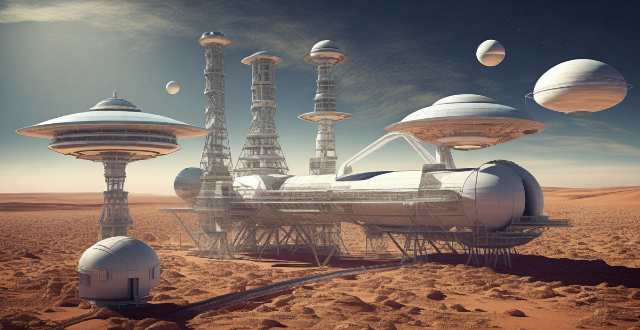
What are the ethical considerations of space exploration and colonization ?
The article discusses the ethical considerations of space exploration and colonization, emphasizing the importance of balancing potential benefits with risks, considering environmental impact, addressing interplanetary diplomacy, and developing a comprehensive legal and regulatory framework. It highlights the need for a strong ethical framework to ensure responsible and sustainable pursuit of space endeavors.
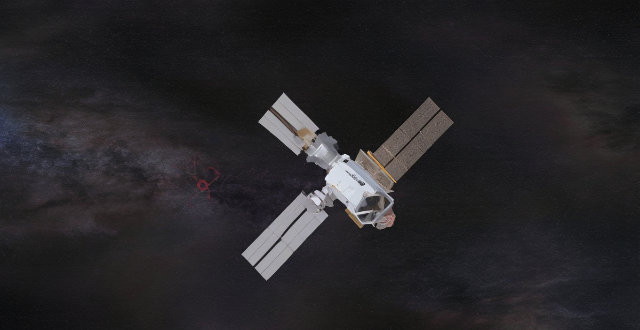
Which space agencies are leading the way in interstellar exploration research ?
The top space agencies leading the way in interstellar exploration research include NASA, ESA, JAXA, and Roscosmos. These agencies have made significant contributions to our understanding of celestial bodies beyond our solar system through various missions and technologies.

What should I pack for a cultural exploration journey ?
When embarking on a cultural exploration journey, itWhen embarking on a cultural exploration journey, it that will enhance your experience and it is important to pack items that will enhance your experience and ensure your comfort throughout the trip. Essential items include comfortable walking shoes, lightweight clothing, culturally appropriate attire, camera, portable charger, travel adapter, sunscreen, insect repellent, basic toiletries, reusable water bottle, daypack, and travel journal. Research the specific needs and customs of the culture you will be visiting to tailor your packing list accordingly.

What are the benefits of embarking on a cultural exploration journey ?
Embarking on a cultural exploration journey is an enriching experience that offers numerous benefits, including expanding your horizons, enhancing communication skills, boosting creativity, developing cultural sensitivity, strengthening adaptability, building global awareness, forging lasting connections, and promoting personal growth and self-discovery.

What are the current advancements in interstellar exploration technology ?
The text discusses the current advancements in interstellar exploration technology. The main topics include the Breakthrough Starshot project, which aims to propel tiny spacecraft to Alpha Centauri using powerful lasers on Earth; warp drive technology that could allow faster-than-light travel by manipulating space-time; ion propulsion systems already used in deep space missions and capable of long-duration missions; and nuclear propulsion systems potentially offering higher speeds than chemical propulsion systems but with safety concerns. These technologies offer hope for humanity's future as an interstellar species.

How would a lunar base impact space exploration and research ?
**Impact of a Lunar Base on Space Exploration and Research** - **Advancements in Space Technology:** A lunar base would necessitate the development of advanced propulsion systems, life support systems, high-frequency communication systems, and precise navigational tools. - **Expansion of Scientific Knowledge:** The establishment could provide insights into lunar geology, resource identification, astrophysical observations through telescope installations, and monitoring of the solar system. - **Human Spaceflight Capabilities:** Long-term stays on the Moon would allow astronauts to adapt to low-gravity environments and conduct medical research, while also requiring specialized training programs and psychological preparation. - **International Collaboration and Policy Development:** A lunar base would encourage global partnerships, shared resources, and prompt the development of new space laws and ethical guidelines.
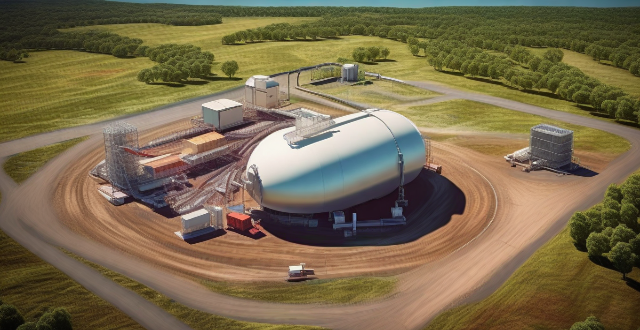
What resources and funding are necessary to support ongoing efforts in interstellar exploration ?
Interstellar exploration requires significant investment in research and development, infrastructure and facilities, personnel and training, and funding sources. Key areas of investment include propulsion systems, life support systems, communication technology, navigation and guidance, robotics and automation, launch vehicles, spacecraft construction, ground stations, research centers, testing facilities, scientists and engineers, astronauts, support staff, government agencies, private sector companies, international collaboration, and philanthropic foundations. By investing in these areas, we can advance our understanding of the universe and pave the way for future generations to explore beyond our solar system.